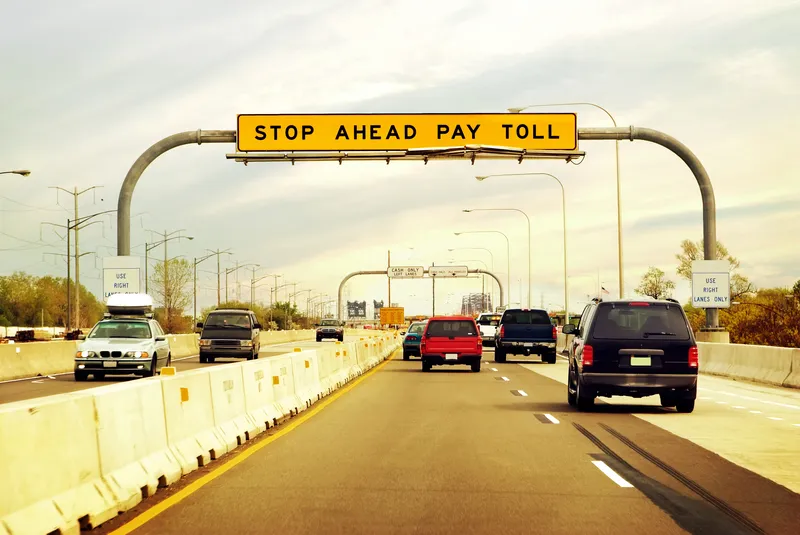
Robert W. Poole, director of transportation policy at the libertarian thinktank Reason Foundation, has written a briefing which looks at how US states could make an ‘orderly transition’ from taxes on fuel to some form of road pricing.
Revenue from traditional taxes on fuel are certainly falling: the fact that engines are more efficient, and therefore less gas is required, is one major reason, even as the search for alternative drivetrains, such as those used in electric vehicles (EVs), moves drivers further away from fossil fuels.
“There is a growing consensus among US transportation researchers, and increasingly among state departments of transportation, that our main highway funding source-per-gallon taxes on gasoline and diesel fuel-will not be sustainable on a long-term basis,” says Poole. By 2045, the US could be looking at a shortfall from “business-as-usual fuel tax revenues” of more than $50 billion per year. Added to that, US highway infrastructure is creaking and requires investment. “The impending fuel tax crisis comes at a difficult time,” he says, with masterly understatement.
Obvious answer
Some sort of road user charging, or mileage-based user fee (MBUF), is the obvious answer. The problem is, this does not have “majority support among taxpayers, motorists and the trucking industry”.
To counter this, Poole thinks it will be important to get to grips with what he sees as the limitations of existing fuel taxes – such as their lack of transparency, the fact that they may not be applicable to all vehicles and do nothing to curb congestion – as part of the argument in favour of a switch to road user charging.
To this end, he suggests that advocates of MBUF should:
• Propose fixing all the major shortcomings of per-gallon fuel taxes, not simply projected revenue shortfalls
• Ensure that when a transition programme is launched, no-one will pay both a state fuel tax and a state MBUF
• Restore the funding mechanism to the original ‘users pay/users benefit’ principle that underlay the federal fuel taxes created to pay for building the Interstate network
• Ensure that the MBUFs are “simple, fair, customer-friendly and analogous to the payment mechanisms for other utilities such as electricity and water supply”
Poole also highlights the role of states – which he pleasingly calls “the laboratories of democracy” - in the process. “States are more trusted on transportation than the federal government, and trust is essential for this transition,” he insists. “Since the need for transitioning to per-mile charges is still poorly understood, it would be wiser to begin the transition based on a more understandable and more urgent need: reconstructing and modernising the ageing Interstate highways, state by state.”
He points out that about a dozen states are already considering toll finance for this purpose – and since Interstates handle a quarter of all US vehicle miles travelled (VMT), “a state that converted its Interstates to per-mile electronic tolling would shift 25% of its VMT to per-mile rather than per-gallon funding”.
Greater transparency
If you add in other limited-access highways which could also be used for transponder tolling, this could rise to one-third of all VMT – a significant chunk of what will eventually be required.
This limited introduction to MBUF would get people used to the idea and – in the sort of exchange that is right up the Reason Foundation’s street – “accountability to customers [would be] established by a direct users-pay/users-benefit system”.
As Poole points out, this would in turn help make the case for a wider introduction of per-mile charging: in short, people would start getting used to it. Greater transparency – a direct link between those who pay for the roads and those whose job it is to maintain them – would be one of the major prizes.
In a thoughtful conclusion, Poole offers up a number of other questions which he thinks need further research, such as how do you stop road user charging becoming a ‘cash cow’ for road operators - and if MBUFs are just for roads, how do we fund other modes of transportation? The debate continues… ITS
• The full report – ‘How a state could transition from per-gallon taxes to per-mile charging’ – can be found at www.reason.org








